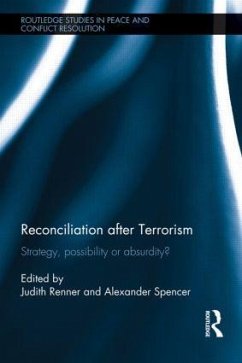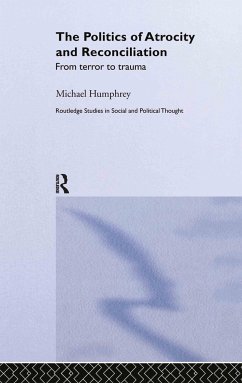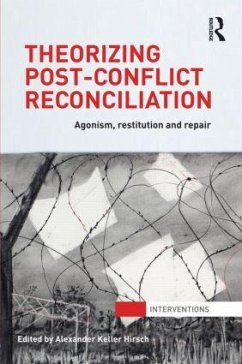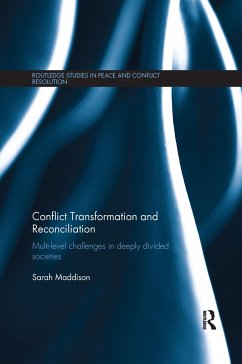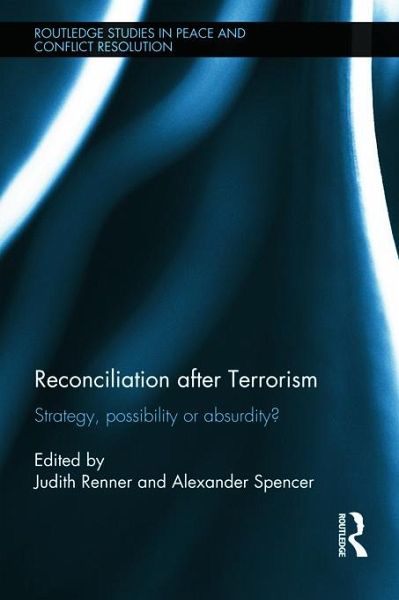
Reconciliation after Terrorism
Strategy, possibility or absurdity?
Herausgeber: Renner, Judith; Spencer, Alexander
Versandkostenfrei!
Versandfertig in 1-2 Wochen
59,99 €
inkl. MwSt.

PAYBACK Punkte
30 °P sammeln!
This book brings together scholars from the hitherto disparate fields of terrorism and reconciliation studies to examine whether reconciliation is a possible strategy for dealing with and ending a terrorist conflict.





